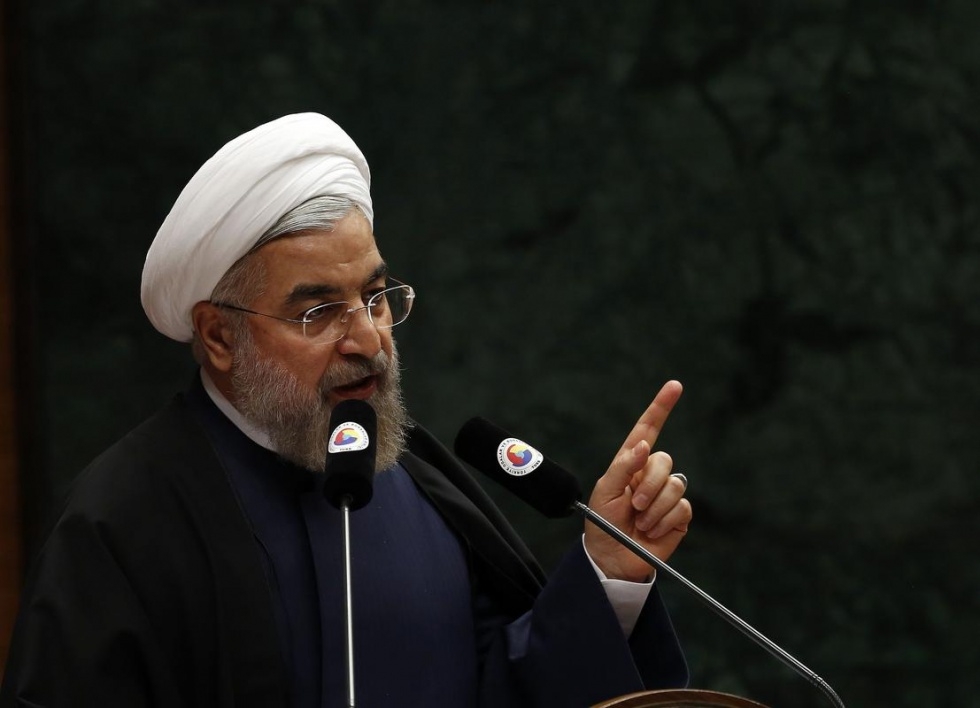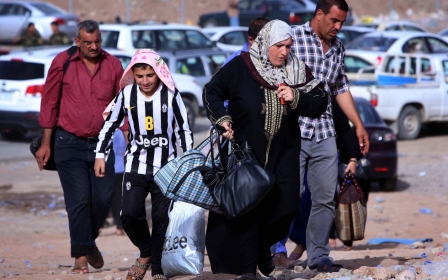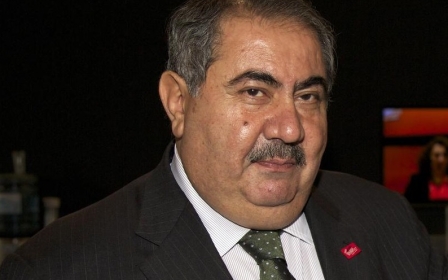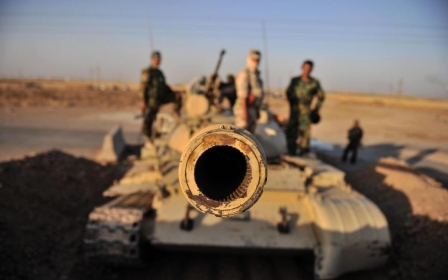Iran faced with tough choices in Iraq

The sweeping advance of militant Sunnis across much of northern and central Iraq has rang alarm bells across the international community and touched off a flurry of anxious analysis on the potential collapse of the Iraqi state and the emergence of a radical Islamic regime in the Arab Sunni heartlands of Iraq.
For Iran, the most influential power in Iraq, the latest Iraqi insurgency holds both peril and promise. On the one hand, the coalition of Sunni Arab tribes, ex-Baathists and assortment of extremists fighting under the banner of the Islamic State of Iraq and Levant (ISIL) are natural enemies of Iran who given the slightest opportunity wouldn’t hesitate to bring the fight inside Iran’s borders.
On the other hand, the staggering incompetence of the Iraqi government and the mood of panic, fight and flight which has gripped the country presents Iran with an opportunity to deepen its influence in Iraq and to extract vital concessions from Iraqi leaders in exchange of decisive Iranian military support.
But the biggest challenge to Iran is to manage demands and expectations that it should cooperate with the United States to tackle the widespread and unprecedented terrorist challenge in Iraq. Even minimal coordination with America at this point is tantamount to falling into a deep and dangerous trap which would not only diminish Iranian influence in Iraq, but would impact negatively on broader Iranian strategic posture in the region.
An implacable foe
Although the mainstream Western media is exaggerating – and to some extent misrepresenting – the nature and scale of the terrorist and insurgent threat, there is no denying the seriousness of the situation. Entire cities and large swathes of territory in the Sunni Arab heartlands of western and north-western Iraq have fallen to a radical movement spearheaded by a ruthless and genocidal-minded terrorist group in the form of ISIL.
What is referred to as the Sunni “revolution” by sympathisers in Iraq and their supporters in the region, is foremost the result of incompetence and mismanagement by the government of Iraqi prime minister Nouri al-Maliki. By alienating Sunni Arabs, Maliki has created fertile ground for the growth of extremist groups.
However, not all the problems can be laid at Maliki’s door. Many Sunni Arab elites still dream of regaining their lost dominion; theirs is not a movement based solely on legitimate grievances, but more accurately it is a quest to disrupt the natural balance of power in Iraq. It is difficult to envisage how any Iraqi government representative of the demographic balance could accommodate chauvinistic and irredentist Sunni Arab aspirations.
For Iran, the situation is potentially serious in so far as the consolidation of the irredentists and extremists’ gains in northern and central Iraq will pose a direct security and possibly even military threat. ISIL has made no secret of its desire to attack Iran directly, and there is no reason to believe that under the right conditions they would not carry through with their threat to launch attacks inside Iran.
Iran has a direct stake in helping the Iraqi government and military to push back against the extremist aggression and to minimise the scope of ungoverned or more accurately extremist governed spaces. To achieve this aim, Iran will take stock of the actual and potential behaviour and capability of all key players, in particular the Kurds who have exploited the instability to secure yet more territorial gains at the expense of the Iraqi state.
There are indications that Iran has already intervened in Iraq, in the form of over 100 Qods force special forces operatives and counter-insurgency specialists. It is alleged that the Qods force commander, General Qasem Suleimani – the most powerful military and security figure in the Middle East – is in Baghdad leading the counter-insurgency effort.
In view of the balance of power on the ground, and the inflamed sectarian mood, it is difficult to envisage Iran intervening more openly, in the form of entire armies crossing the border to shore up Iraqi defences. The Iranian calculus may change however in the event of a credible threat to Baghdad and to the all-important shrine cities of Najaf and Karbala.
The bigger foe
As in Syria, the latest crisis in Iraq has exposed the limitations of American power and influence in the Middle East. There is no getting away from the fact that the United States is a fading power on the Middle East stage, bereft of the ability to decisively alter the course of events on the ground.
In view of the fact that the cardinal goal of Iranian policy in the region is to engineer the complete withdrawal of the United States from the Middle East, Iran would be the last country to call for American military intervention in Iraq. Not only would this intervention – likely in the form of air strikes - inflame sectarian tensions but it would not in any case improve the position of Iranian allies in Iraq.
Iranian strategists likely see an opportunity in the latest crisis to wrest Iraq away from American military influence. However, this same opportunity is potentially a very dangerous trap if Iran over-reaches and intervenes too deeply in Iraq. Doubtless the United States and Israel want Iran to be drawn into a long and costly counter-insurgency operation in Iraq – similar to the Iranian effort in Syria - thus draining Iranian resources on two fronts.
More broadly, even as Iran and the United States engage on resolving the nuclear dispute, speculation on security and military cooperation is both ill-informed and spectacularly wishful. The factors militating against sustained security engagement centre on a foundational ideological conflict between Iran and the United States.
Whilst the United States crafts its policy in the Middle East and elsewhere on the exclusive premise of national interest, Iran’s strategy and policy is much more complex and in part reflects the country’s profile as a revolutionary and ideological power. Simply put this makes sustained cooperation with the United States all but impossible.
- Mahan Abedin is an analyst of Iranian politics. He is the director of the research group Dysart Consulting.
The views expressed in this article belong to the author and do not necessarily reflect the editorial policy of Middle East Eye.
Photo credit: Iranian president Hassan Rouhani speaks during the Turkey-IranBusiness Forum at the Union of Chambers and Commodity Exchanges of Turkey in June (AA)
New MEE newsletter: Jerusalem Dispatch
Sign up to get the latest insights and analysis on Israel-Palestine, alongside Turkey Unpacked and other MEE newsletters
Middle East Eye delivers independent and unrivalled coverage and analysis of the Middle East, North Africa and beyond. To learn more about republishing this content and the associated fees, please fill out this form. More about MEE can be found here.





